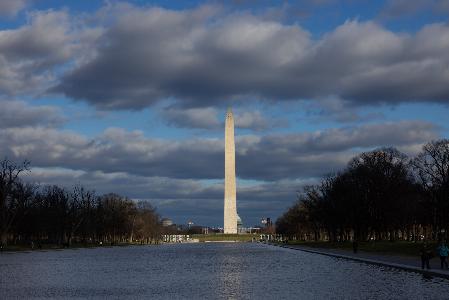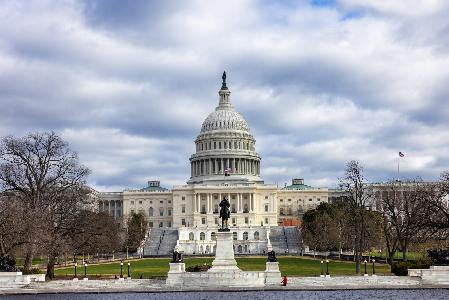It used to be that you’d listen to new songs on MTV, in your car radio or at the record store. Cities had distinctive sounds, whether it was funk in D.C. or Motown in Detroit. But all of that has changed, and now music is heard through so many formats that many wonder how artists and the industry will adapt and survive. One answer right now is profitability through streaming content, and that means finding opportunity by adapting to the times.
“In the past, it would usually be the same artists who would release new songs and make their way to the top charts,” said Shahier Rahman of General Assembly, who moderated a recent discussion on music and tech. “Well, since the advent of music streaming and the easy availability to find new music, we’ve seen that so many more people that are new to the music scene are able to get their content out there.”
Last year, there were over 250 billion songs streamed through the internet, an 82.6 percent increase from the previous year, according to Nielsen. And this year is looking as if it will be the year for music streaming, with a 62.4 percent increase over last year, with on-demand audio streaming reaching over 184 billion songs as of last month. But album sales are down 18 percent over last year, while weekly on-demand audio streaming reached seven billion in March.
For Cameron Jones, CFO at music-focused cable network Revolt TV, the future means rethinking how we define record labels.
“Anybody is going to be able to be a record company – Sprint, Verizon, Comcast,” he said. “Artists are asking themselves, ‘Do I want to sign with Universal, or do I want to sign with Apple?’ Apple is not your traditional music company, but you literally have music artists signing to Apple.”

Cameron Jones, CFO at Revolt TV, said that traditional record labels will be a thing of the past. (Photo by James Cullum)
In 2016, the billboard 200 featured over 650 solo artists, groups and collaborators that represented over 1,200 unique new songs. It’s great news for the consumer, and while the opportunity for artists to be heard is greater, it also makes it tough to be a small fish in a big pond.
It’s meant becoming adaptable for Tarek Mohamed, a professional percussionist and music teacher who has played in and around D.C. for nearly a decade.
“Music technology has made it much easier to be independent through distribution and marketing, but the field is flooded with thousands and thousands of people who also want to make a career in music,” he said. “Sometimes I wish it was 25 years ago. That way, as a musician with actual skill, it would be easier to be recognized, but technology has expanded my access to music I’d otherwise never hear…I found a dope German producer called Flughand. If it weren’t for Apple Music, I would’ve never discovered him and I’m pretty sure he doesn’t have a large fan base.”
Taylor Bennett, director of public affairs at Pandora, said that the industry is still in a decline, despite turning a corner last year.
“Every time a new technology comes out, everyone says the music industry is going to die,” he said. “You don’t need to be on a label to get a big break.”

Madelyn Dutt, the media content manager at 9:30 Club, Merriweather Post Pavilion and I.M.P. speaks about how tech has changed the live music scene. (Photo by James Cullum)
Tech has also had a big impact on the experience of seeing live music.
“Social media has given new life to the concert and festival crowd,” said Madelyn Dutt, the media content manager at the 9:30 Club, Merriweather Post Pavilion and I.M.P. ”The biggest difference is people are posting more on social media either during or after a show, which is a way to show people what you are up to or really like. It creates a community and a network.”

Fitz Holladay, the director of Sofar Sounds DC, said audiences are utilizing tech, but still crave a live music environment. (Photo by James Cullum)
However, not all new approaches involve devices.
Fitz Holladay is the director of Sofar Sounds DC, a grassroots network of artists, hosts and guests who curate secret live music events in small venues. Sofar Sounds has grown to producing events in over 350 cities across the globe since its inception in 2010.
“People are so ready to be able to sit and be present and be able to experience music, just to be able to shut off all these things we are talking about,” he said.
Jones sees signs that these experiences will be integrated more seamlessly in the future. It may mean less physical attendance at live events, but more options for listening enjoyment.
“I think the way people consume and experience music – virtual reality today is probably nowhere near what it’s going to look like five to 10 years from now, but I see people literally sitting in rooms with visors,” he said. “Maybe looking at five different festivals from who knows where across the globe, enjoying themselves, maybe even dancing with each other while listening to different music.”
Join the conversation!
Find news, events, jobs and people who share your interests on Technical.ly's open community Slack

DC daily roundup: the DMV's VC cooldown, SmartSigns for safer driving; Rep. Schiff's AI copyright bill

Will the life sciences dethrone software as the king of technology?

Delaware tech leaders gather at White House for action summit with Biden and Harris

